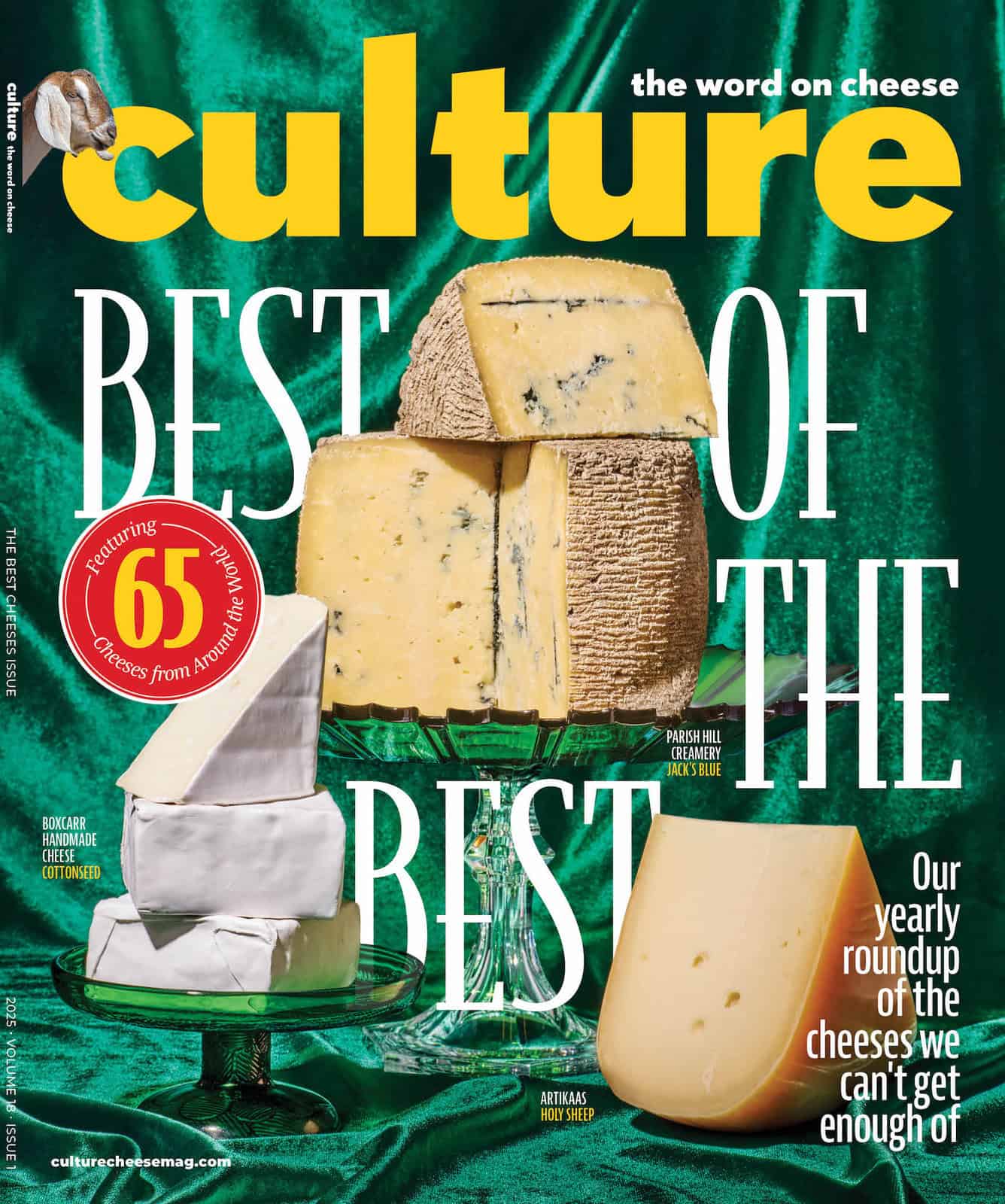
As political drama envelopes society, not even cheese will be left unscathed. The latest fray to hit international dairy relations involves Manchego DOP. The beloved sheep’s milk wheel has become the sticking point in a dispute between Mexico and the European Union, effectively stymying renegotiations over an 18-year-old trade deal.
The controversy surrounds the name. Since 1984, “Manchego” has been protected under European Union law. A cheese can only be called Manchego in Europe if it’s made in certain parts of Spain’s La Mancha region from sheep’s milk, following specific guidelines.
The same type of name protection, called a Geographic Indication, applies to many other cheeses, from Comté to Stilton to Parmigiano Reggiano. It’s a bit like a trademark, but granted to a group of local producers instead of a single private company. The idea is to preserve traditional recipes and cheesemaking methods while discouraging imitation.
Seems congenial enough, but on the international scale, the protection is non-binding—so things get fuzzier when you step outside the Old World. The U.S. government, for example, doesn’t officially recognize Geographic Indications for cheese. The Mexican government does comply with some of them, recognizing 30 name-protected European cheeses. But with the revised trade deal, the EU is demanding recognition of 27 more. Manchego, it seems, is where the line is being drawn, now that a group of Mexican dairy companies has stepped in to voice objections.
Hundreds of years ago, Spanish immigrants reached the New World with animals—as well as cheesemaking recipes—in tow, and began making the cheeses of their homeland. According to the book Quesos Mexicanos by cheese expert Carlos Yescas, a La Mancha style of cheese was made in the Mexican state of Puebla as early as 1585.
The name Manchego didn’t surface in Mexico until much later, though, when a dairy conglomerate used it to describe a pasteurized cow’s milk cheese made using lactic cultures. As its style became popular, the name spread.
“Our argument is that it’s a generic concept and it is not trying to steal the name from Spain,” the president of Mexico’s National Chamber of the Dairy Industry, Miguel Ángel García Paredes, told local newspaper Milenio.
The “Manchego types” sold in Mexico are often flavored, pre-packaged in singles, and destined for melting. Many contain potato starch and other ingredients common in industrial cheeses.
Spanish Manchego producers argue that presence of these types on the market—in Mexico or anywhere in the world that the cheese is imported, like the US—could be skewing the reputation of the product they’ve worked so hard to protect, while undercutting its price by half.
Ismael Álvarez de Toledo, president of the Spanish Brotherhood of Manchego Cheese, the group overseeing the Geographic Indication, compared “Manchego types” to bootleg handbags and watches.
“Manchego is the Rolex of the cheese world, the most imitated and the most abused,” he told The Telegraph.
Despite the drama, both governments acknowledged a commitment to harmonizing their respective systems; after all, Mexico also has laws for protecting its own traditional foods and drinks that are subject to imitation in Europe. Similar disputes are being fought in Argentina and Brazil, involving foods with inherited names brought by colonizers.
Oldways Cheese Coalition director Carlos Yescas, who has extensively researched Latin American cheese traditions, argues that both governments have a role to play. While it’s important for New World dairy conglomerates to stop using protected names, he says, it’s equally vital that EU governments ensure the integrity of their own systems. “Spain should start protecting its own producers on the ground by cracking down on copies of Manchego sold within Spain,” he says. (An advocate of artisanal products, Yescas recently wrote about the conflict for Mexican publication Horizontal.)
“The discussion between the countries should consider the many benefits that protecting foods can have on our environments, cultures, and traditions,” he says. “Protection should be equally demanded from everyone.”



